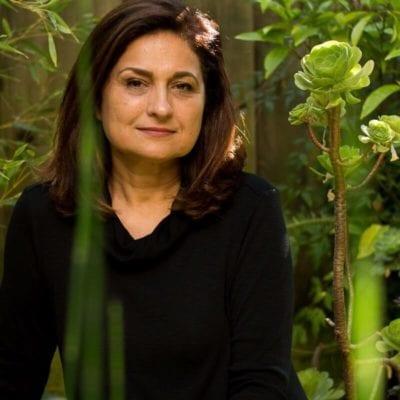by Anniqua Rana
 My journey to the Women’s National Book Association – San Francisco Chapter (WNBA-SF) began in the front seat of my car—laptop propped open, phone tethered, rain streaking the windows. It was during the pandemic, the power was out at home, and Starbucks was too noisy. Still, I wasn’t about to miss Pitch-O-Rama, my first introduction to this dynamic writers’ community.
My journey to the Women’s National Book Association – San Francisco Chapter (WNBA-SF) began in the front seat of my car—laptop propped open, phone tethered, rain streaking the windows. It was during the pandemic, the power was out at home, and Starbucks was too noisy. Still, I wasn’t about to miss Pitch-O-Rama, my first introduction to this dynamic writers’ community.
Despite the storm, I found myself in an online room filled with warmth—writers from across the country encouraging one another, sharing stories, and building something far more profound than a typical networking event. It felt like a place to linger—like Rumi’s Guesthouse, Quintilian’s Memory Palace, or perhaps more aptly, Woolf’s Room of One’s Own.
And somewhere in the courage of that gathering, I was reminded of the defiant verse by Kishwar Naheed, one of Pakistan’s most fearless feminist Urdu poets:
“Yeh hum gunahgaar auratein hain… hum ne bachpan mein khelon se mohabbat ki thi, aur ab qalam se karte hain”—
We are the sinful women… who as children loved our toys, and now we love our pens.
That sense of purpose and belonging has never left me. The WNBA, founded in 1917 by women originally excluded from the male-dominated publishing world, was built on the belief that everyone deserves a seat at the literary table. Those values continue to guide the San Francisco chapter today. But what drew me in wasn’t just the history—it was what I saw happening: active support for BIPOC writers, a commitment to equity, and a space where ideas are nurtured and voices are heard.
The WNBA–San Francisco Chapter was founded in 1968 by the remarkable Effie Lee Morris, a pioneering Black librarian and activist who became the first Coordinator of Children’s Services at the San Francisco Public Library. Her vision established a chapter rooted in diversity, literacy, and community engagement—principles that remain central to our mission.
Becoming a board member wasn’t a difficult leap. Elise Marie Collins (now the National Board President) encouraged me to join. I wasn’t sure what role I would play, but after attending a few meetings, I couldn’t resist joining such an engaged and empowering group.
From Elise Marie Collins, I learned the value of leading with care and intention—she brings a deep sense of compassion to everything she does, whether guiding a yoga class, supporting fellow writers, or creating spaces where community and well-being thrive. From Brenda Knight, I learned the power of combining literary passion with purposeful leadership to uplift diverse voices and create a lasting impact in the publishing world. From Joan Gelfand, I learned that a true literary life is built through generosity, creativity, and a deep commitment to nurturing both words and writers. And from Ellen McBarnette, I learned how to actively build community and reach out to fellow writers with generosity, purpose, and a deep love for the written word.
Each past and present board member has been equally inspiring. Just attending a board meeting fills me with energy and purpose. Now in my third year on the board, I continue to learn how to stay connected to a community devoted to making unheard voices heard—and taken seriously.
As a writer, my work explores identity, culture, and the courage it takes to find one’s voice—threads that echo my journey growing up in Pakistan and living across continents. My novel, Wild Boar in the Cane Field, is rooted in my childhood village, and my nonfiction spans topics from Virginia Woolf and knitting to women athletes in Pakistan and a visit to Harley’s Goat Farm in Pescadero.
I’m currently working on a collection of essays titled Kneading Life, which explores the intersection of cooking and writing through my experiences as a writer and educator, shaped by a childhood between Pakistan and the UK, and my journey as an immigrant in California. The work is inspired by the kitchen philosophies of Mexican nun, poet, and feminist Sor Juana Inés de la Cruz. It is guided by the voices of women writers who have stirred my imagination and shaped my thinking, including Virginia Woolf, Fatima Mernissi, Amy Tan, Kishwar Naheed, and Doris Lessing.
As an educator in the California Community College system, I’ve seen firsthand the transformative power of storytelling, especially for students just beginning to trust that their voices matter. That’s what WNBA-SF offers: a space where storytellers and readers of all backgrounds can grow together.
Today, I continue to be inspired—not only by Pitch-O-Rama, but also by our author mixers, our partnerships with organizations like the San Francisco Writers Conference, and our vibrant readings and workshops. The magic of this chapter lies in its ability to connect people across genres, identities, and generations. It’s not just about writing—it’s about finding a creative home.
If you’re looking for a literary community that values equity, imagination, and connection, I hope you’ll consider joining us. WNBA-SF is always open to new members, and we’re especially excited to welcome those who want to help shape the future of our work as board members.
Reach out—I’d love to discuss how your story might fit into ours.

This is wonderful, Anniqua. I’m so happy you’re a part of the board and are encouraging others to reach out. WTG!
See you at the next meeting.
Lynn
http://www.writeradvice.com
Thank you. It’s really such an honor to be in this group.